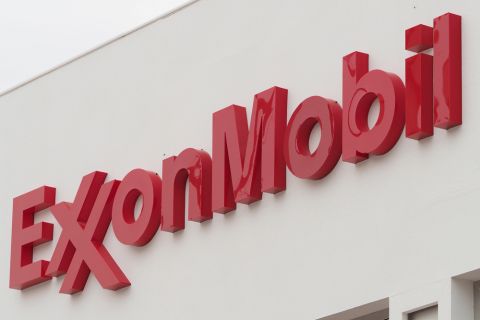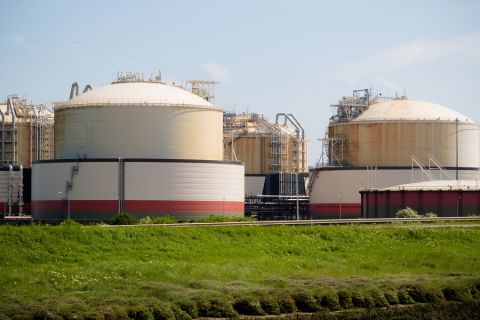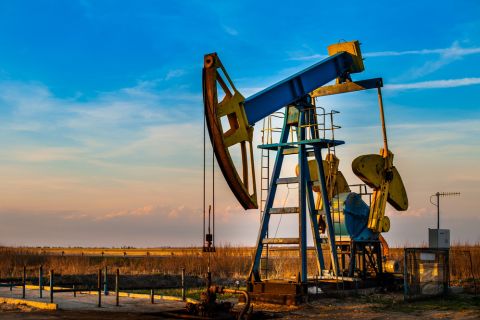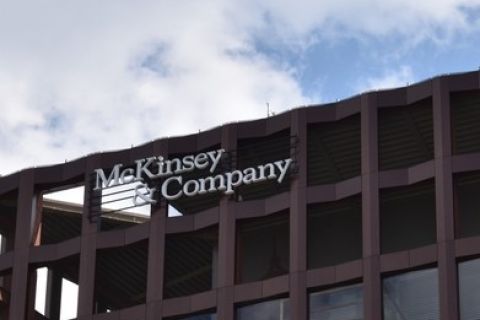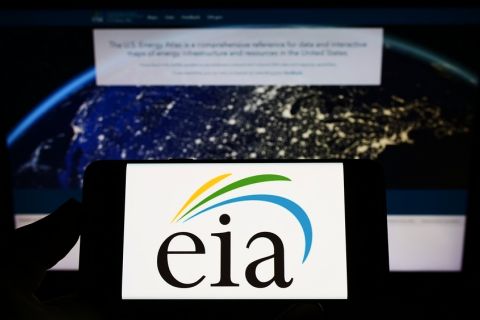
Drilling operations are being conducted on Tug Hill’s 100th well, the Woodford 8HU, a Utica/Point Pleasant well in Marshall County, W.Va. (Source: Tug Hill Operating)
In the largest deal of the year, EQT Corp.’s $5.2 billion splurge on Appalachian Basin upstream and midstream assets will result in more free cash flow, lower operating costs and an increased debt reduction—all while doubling shareholder buybacks.
On Sept. 6, EQT Corp. entered into a purchase agreement to acquire THQ Appalachia I LLC (Tug Hill)’s upstream assets and THQ-XcL Holdings I LLC (XcL Midstream)’s gathering and processing assets. Both private companies are backed by private-equity provider Quantum Energy Partners.
The Appalachian bolt-on adds 800 MMcfe/d to EQT’s current operations. The company will gain approximately 90,000 core net acres offsetting its existing West Virginia core leasehold, with a 96% operated working interest and 83% net revenue interest.
Goldman Sachs said the deal’s integration of gathering, processing and water midstream assets is expected to add about $150 million in long-term free cash flow.
Andrew Dittmar, director at Enverus Intelligence Research, a subsidiary of Enverus, said the acquisition is a “significant vote of confidence on the ability of the Appalachian Basin to supply the U.S., and potentially even global allies, from a company deeply committed to the region.”
“Unlike other Appalachian operators that have diversified their production base into the Haynesville, EQT has stayed true to its roots in the Marcellus and Utica confident that inventory and infrastructure in the region will be sufficient to sustain the company long term,” Dittmar said.
EQT’s Tug Hill Bolt-on |
|||
| EQT | Tug Hill | Pro Forma | |
| Core Net Acres | ~1,000,000 | ~90,000 | ~1,100,000 |
| 2022E Production (Bcfe/d) % Liquids | ~5.5~5% | ~0.8~20% | ~6.3~6% |
| FCF Breakeven Price ($/MMBtu) | ~$2.30 | ~$1.35 | ~$2.15 |
| Core Net Locations | ~1,800 | ~300 | ~2,100 |
The deal adds a high-quality inventory runway of more than 10 years and midstream infrastructure in a southwestern expansion that balances the company’s earlier entry into the northeast Marcellus when it acquired Alta Resources for $3 billion in May 2021.
The deal is also a breakthrough of sorts for companies that have tried to bridge the gap between valuations, commodity price volatility and the expectations of private sellers and private buyers, Dittmar said.
“It is highly encouraging for the outlook for M&A to see a private sale of this scale that is well received by public E&P investors,” Dittmar said. “While inventory runway is important, investors are currently highly focused on deals helping fuel dividends and buybacks.”
EQT attributed $4.1 billion to the upstream assets and $1.1 billion to the midstream, said Mark A. Lear, an analyst with Piper Sandler, in a Sept. 7 report.
The deal is the largest U.S. upstream transaction in about a year, since ConocoPhillips Co. purchased Shell Plc’s Permian Basin assets for $9.5 billion in September 2021, according to Enverus. More significantly, it is the largest Appalachian Basin deal in more than five years.
“EQT estimates it is paying 2.7x on a combined upstream and midstream basis and the deal will be 5-10% accretive to FCF over the next five years,” Lear said. “As a result of the transaction, EQT expects to retire an additional $1.5 billion of debt and increase the buyback to $2 billion (from $1 billion) through YE23.”
The deal tops EQT’s purchase of Rice Energy for $8.2 billion in the summer of 2017—which is the transaction that set Toby Rice on the path to becoming EQT’s current CEO.
The purchase price suggests a conservative 2.3x next-12-month EBITDA for the upstream assets and 2.7x EBITDA for the upstream and midstream assets combined, Dittmar said.
“All in, the assets have a 27% next-12-month free cash flow yield,” Dittmar said. “The boost to free cash flow per share, plus a doubling of EQT’s authorized share repurchase to $2 billion are certainly key factors in why investors seem to be reacting favorably to the deal.”
Goldman Sachs analyst Umang Choudhary said integration risk is low since THQ is adjacent to EQT’s existing footprint, while the midstream assets provide greater connectivity to long-haul pipelines. The free cash flow breakeven of the acquired asset is about $1.35/MMBtu compared with EQT’s current $2.30/MMBtu.
Recommended Reading
Exxon’s Payara Hits 220,000 bbl/d Ceiling in Just Three Months
2024-02-05 - ExxonMobil Corp.’s third development offshore Guyana in the Stabroek Block — the Payara project— reached its nameplate production capacity of 220,000 bbl/d in January 2024, less than three months after commencing production and ahead of schedule.
Venture Global, Grain LNG Ink Deal to Provide LNG to UK
2024-02-05 - Under the agreement, Venture Global will have the ability to access 3 million tonnes per annum of LNG storage and regasification capacity at the Isle of Grain LNG terminal.
What's Affecting Oil Prices This Week? (Feb. 5, 2024)
2024-02-05 - Stratas Advisors says the U.S.’ response (so far) to the recent attack on U.S. troops has been measured without direct confrontation of Iran, which reduces the possibility of oil flows being disrupted.
McKinsey: US Output Hinges on E&P Capital Discipline, Permian Well Trends
2024-02-07 - U.S. oil production reached record levels to close out 2023. But the future of U.S. output hinges on E&P capital discipline and well-productivity trends in the Permian Basin, according to McKinsey & Co.
EIA: Oil Prices Could Move Up as Global Tensions Threaten Crude Supply
2024-02-07 - Geopolitical tensions in the Middle East and ongoing risks that threaten global supply have experts questioning where oil prices will move next.


